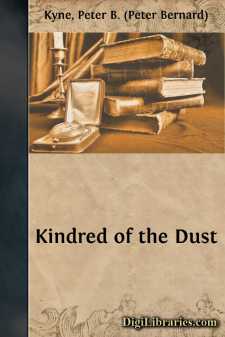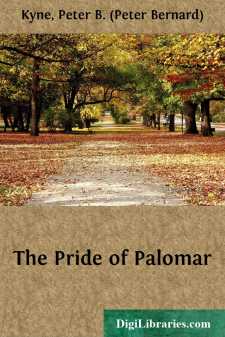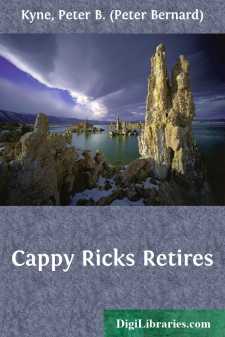Categories
- Antiques & Collectibles 13
- Architecture 36
- Art 48
- Bibles 22
- Biography & Autobiography 813
- Body, Mind & Spirit 142
- Business & Economics 28
- Children's Books 17
- Children's Fiction 14
- Computers 4
- Cooking 94
- Crafts & Hobbies 4
- Drama 346
- Education 46
- Family & Relationships 57
- Fiction 11829
- Games 19
- Gardening 17
- Health & Fitness 34
- History 1377
- House & Home 1
- Humor 147
- Juvenile Fiction 1873
- Juvenile Nonfiction 202
- Language Arts & Disciplines 88
- Law 16
- Literary Collections 686
- Literary Criticism 179
- Mathematics 13
- Medical 41
- Music 40
- Nature 179
- Non-Classifiable 1768
- Performing Arts 7
- Periodicals 1453
- Philosophy 64
- Photography 2
- Poetry 896
- Political Science 203
- Psychology 42
- Reference 154
- Religion 513
- Science 126
- Self-Help 84
- Social Science 81
- Sports & Recreation 34
- Study Aids 3
- Technology & Engineering 59
- Transportation 23
- Travel 463
- True Crime 29
Kindred of the Dust
Description:
Excerpt
I
In the living-room of The Dreamerie, his home on Tyee Head, Hector McKaye, owner of the Tyee Lumber Company and familiarly known as "The Laird," was wont to sit in his hours of leisure, smoking and building castles in Spain—for his son Donald. Here he planned the acquisition of more timber and the installation of an electric-light plant to furnish light, heat, and power to his own town of Port Agnew; ever and anon he would gaze through the plate-glass windows out to sea and watch for his ships to come home. Whenever The Laird put his dreams behind him, he always looked seaward. In the course of time, his home-bound skippers, sighting the white house on the headland and knowing that The Laird was apt to be up there watching, formed the habit of doing something that pleased their owner mightily. When the northwest trades held steady and true, and while the tide was still at the flood, they would scorn the services of the tug that went out to meet them and come ramping into the bight, all their white sails set and the glory of the sun upon them; as they swept past, far below The Laird, they would dip his house-flag—a burgee, scarlet-edged, with a fir tree embroidered in green on a field of white—the symbol to the world that here was a McKaye ship. And when the house-flag fluttered half-way to the deck and climbed again to the masthead, the soul of Hector McKaye would thrill.
"Guid lads! My bonny brave lads!" he would murmur aloud, with just a touch of his parents' accent, and press a button which discharged an ancient brass cannon mounted at the edge of the cliff. Whenever he saw one of his ships in the offing—and he could identify his ships as far as he could see them—he ordered the gardener to load this cannon.
Presently the masters began to dip the house-flag when outward bound, and discovered that, whether The Laird sat at his desk in the mill office or watched from the cliff, they drew an answering salute.
This was their hail and farewell.
One morning, the barkentine Hathor, towing out for Delagoa Bay, dipped her house-flag, and the watch at their stations bent their gaze upon the house on the cliff. Long they waited but no answering salute greeted the acknowledgment of their affectionate and willing service.
The mate's glance met the master's.
"The old laird must be unwell, sir," he opined.
But the master shook his head.
"He was to have had dinner aboard with us last night, but early in the afternoon he sent over word that he'd like to be excused. He's sick at heart, poor man! Daney tells me he's heard the town gossip about young Donald."
"The lad's a gentleman, sir," the mate defended. "He'll not disgrace his people."
"He's young—and youth must be served. Man, I was young myself once—and Nan of the Sawdust Pile is not a woman a young man would look at once and go his way."
In the southwestern corner of the state of Washington, nestled in the Bight of Tyee and straddling the Skookum River, lies the little sawmill town of Port Agnew....







